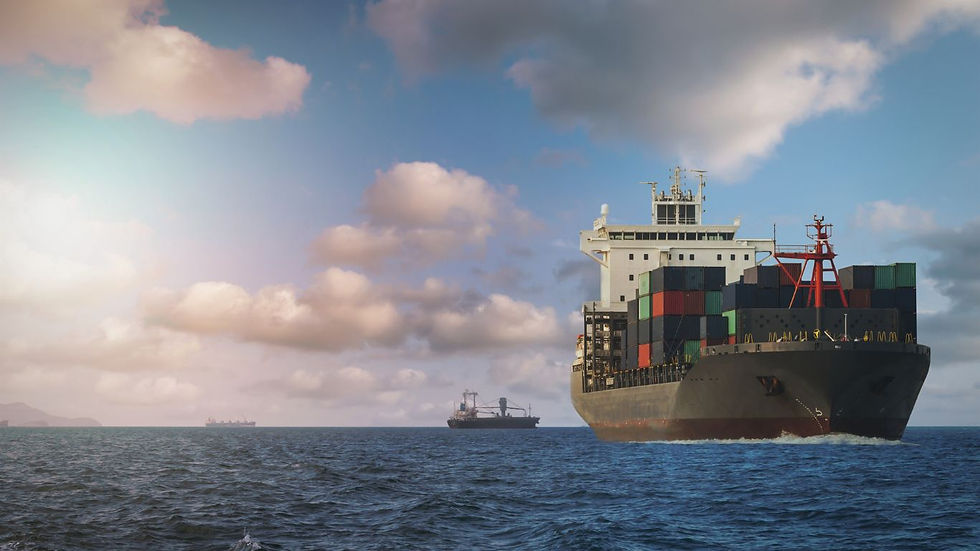top of page


Criminal Maritime Law

Our firm stands out for its solid track record in maritime criminal law, having successfully defended our clients. Trust our experience to address the most complex legal challenges in the maritime field and successfully protect your interests.
At Law Assessor & Co., we don't work alone; we collaborate closely with our international partners, allowing us to approach each maritime criminal law case with a global perspective and extensive resources. Our international network strengthens our ability to effectively defend your interests.

Maritime criminal offenses


DRUG TRAFFIC
Drug trafficking on ships is a tactic used by criminal organizations to move illicit substances through international maritime routes. They conceal cargo in containers, false bottoms, or ship structures, taking advantage of the vastness of the ocean to evade controls. Despite the efforts of authorities, maritime drug trafficking persists, with seizures worth millions in ports and on the high seas. International cooperation is key to curbing this activity, reinforcing inspections, satellite surveillance, and patrols. Combating this crime requires innovation in port security and strategic policies to minimize its impact on legal trade and global security.

SMUGGLING
Ship smuggling is a strategy used to transport illegal goods, from counterfeit to restricted goods, avoiding customs controls. Shipments are often hidden in secret compartments, among legitimate merchandise, or through falsified documents. This crime impacts the economy, security, and legitimate trade, generating tax losses and strengthening criminal networks. Authorities combat smuggling with advanced inspections, tracking technology, and international cooperation. Despite these efforts, smugglers' creativity continues to evolve, requiring new control and regulatory strategies to curb this activity.

PIRACY
Maritime piracy is the commission of unlawful acts of violence, capture, or plunder against vessels on the high seas for private purposes. According to Article 101 of the United Nations Convention on the Law of the Sea (UNCLOS), these acts must occur outside a State's jurisdiction to be considered piracy. It is distinguished from armed robbery on ships, which occurs within territorial waters. Piracy affects the security of maritime trade, putting the lives of crews and passengers at risk. To combat it, States have implemented security measures and international cooperation in high-risk areas such as the Gulf of Aden and the Strait of Malacca.

HUMAN TRAFFICKING
Human trafficking is a serious crime that involves the recruitment, transportation, transfer, harboring, or receipt of persons through coercion, deception, or abuse of power, for the purpose of exploitation. This exploitation may include forced labor, slavery, sexual exploitation, or servitude. Trafficking takes place in various contexts, including on ships, where victims may be smuggled into inhumane conditions.
According to the Palermo Protocol, trafficking in persons is a violation of fundamental rights, and States must cooperate in its prevention. International and national legislation seeks to eradicate this crime and protect victims through security and assistance strategies. Despite global efforts, it remains a challenge due to organized criminal networks operating in different parts of the world. Awareness raising and coordinated action are essential to combat this serious human rights violation.
According to the Palermo Protocol, trafficking in persons is a violation of fundamental rights, and States must cooperate in its prevention. International and national legislation seeks to eradicate this crime and protect victims through security and assistance strategies. Despite global efforts, it remains a challenge due to organized criminal networks operating in different parts of the world. Awareness raising and coordinated action are essential to combat this serious human rights violation.

ILLEGAL FISHING
Illegal fishing is the unauthorized capture of marine resources, violating national or international regulations. This crime includes fishing without a license, the use of prohibited gear, the capture of protected species, and activities outside established quotas. Illegal fishing affects marine biodiversity, contributes to overexploitation, and harms fishing communities by fostering unfair competition.
According to the United Nations Convention on the Law of the Sea (UNCLOS), States must take measures to prevent this crime. Furthermore, organizations such as the FAO and Interpol have developed strategies to combat it through maritime patrols and international cooperation. Illegal fishing remains a global threat, especially in vulnerable areas such as the South Pacific and the Atlantic Ocean, where criminal networks operate with impunity. Combating this problem requires effective laws and constant surveillance in international and national waters.
According to the United Nations Convention on the Law of the Sea (UNCLOS), States must take measures to prevent this crime. Furthermore, organizations such as the FAO and Interpol have developed strategies to combat it through maritime patrols and international cooperation. Illegal fishing remains a global threat, especially in vulnerable areas such as the South Pacific and the Atlantic Ocean, where criminal networks operate with impunity. Combating this problem requires effective laws and constant surveillance in international and national waters.

ENVIRONMENTAL CRIMES
Ship-related environmental crimes occur when a vessel damages the marine ecosystem by discharging polluting substances, such as oil, toxic chemicals, or untreated wastewater. These actions can be the result of carelessness, irresponsible decisions, or even intentional acts for economic gain. As a result, biodiversity is harmed, affecting marine species and water quality, which also impacts human health and the coastal economy. At the legal level, there are strict regulations and international treaties that seek to prevent and punish these practices, establishing fines and penalties for those responsible. Protecting the ocean is key to the sustainability of the planet and maritime activities.

Maritime Criminal Defense with experience and confidence
In the complex world of maritime law, our firm stands out for its unusual expertise: maritime criminal defense. We handle cases involving vessels, crews, and port operations, providing expert legal advice on crimes occurring in jurisdictional waters and coastal zones.
CMS
bottom of page